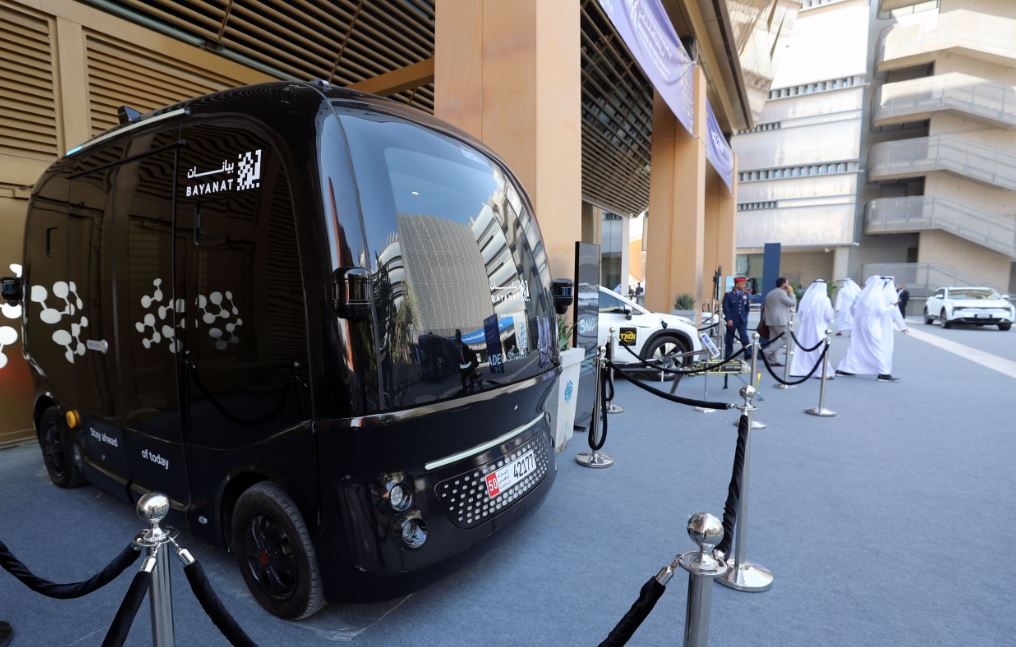Abu Dhabi has initiated a program with the aim of establishing the emirate as a significant center for the development of high-tech vehicles, in order to further diversify the economy and create numerous job opportunities. The Smart and Autonomous Vehicles Industry (Savi) cluster, which is centered around the clean energy hub Masdar City, will develop smart and autonomous vehicles for air, land, and sea use, according to the Abu Dhabi Department of Economic Development (Added). Officials anticipate that the multi-modal hub will contribute between Dh90 billion and Dh120 billion ($24.5 billion to $32.7 billion) to the UAE’s economy and generate up to 50,000 jobs. “As a catalyst for Abu Dhabi’s diversification, Savi is a game-changer that will unleash extraordinary economic growth and create new opportunities for talent, entrepreneurs, and investors,” said Ahmed Al Zaabi, chairman of Added. The program will establish advanced infrastructure and centers to incubate disruptive technologies and start-ups from around the world. Additionally, there will be collaboration with other governments, regulatory agencies, and manufacturers to advance the smart mobility sector. The testing of vehicles that will be developed at the cluster will be conducted at dedicated sites at the Nibras Al Ain Aerospace Park, the Yas Marina Circuit on Yas Island, and Musaffah Port, respectively. Abu Dhabi is being positioned to “take charge in propelling the future of mobility,” said Badr Al Olama, acting director general of the Abu Dhabi Investment Office, at the Savi launch. Smart mobility is the integration of advanced technology and data-driven solutions to create efficient, sustainable, and user-centric transport systems. According to data from Spherical Insights & Consulting, the global smart mobility sector is projected to expand at a compound annual growth rate of more than 21% to about $404 billion by 2032, from $48.54 billion in 2022. Meanwhile, the world’s self-driving vehicle market is expected to reach $93.3 billion by 2028, up from $33.48 billion this year, at a compound annual growth rate.Several initiatives have been implemented to facilitate the implementation of driverless services. According to Thierry Lestable, the executive director of the AI and Digital Science Research Centre at Abu Dhabi’s Technology Innovation Institute, this is a crucial aspect that positions Abu Dhabi as a leading smart city. Last year, Abu Dhabi introduced its own fleet of driverless taxis on Yas Island, operated by TXAI. During the Etihad Airways Abu Dhabi Grand Prix, TXAI also provided a driverless bus service for spectators. Additionally, the emirate is currently conducting trial programs for drone delivery services. Recently, the Autonomous Rapid Transit vehicles, a new electric bus similar to a tram, commenced operations in Abu Dhabi. To further emphasize their commitment, Abu Dhabi has launched Savi, a project that symbolizes hope and a future filled with possibilities. It serves as a call to action for the community to come together and address the transportation challenges with courage and determination, as stated by Mr. Al Olama. The launch of Savi is also timely, as it coincides with the upcoming Cop28 climate change conference, which will be hosted by the UAE. Savi is supported by major organizations in Abu Dhabi, including Masdar City, Tawazun Industrial Park, Maqta Gateway, part, and Miral, who will provide the necessary infrastructure and support services for the development of autonomous vehicles across air, land, and sea. Furthermore, the Abu Dhabi Department of Economic Development, General Civil Aviation Authority, Integrated Transport Centre, and Abu Dhabi Maritime are collaborating to certify autonomous vehicle operations throughout the emirate. The Mohamed bin Zayed University of Artificial Intelligence, Technology Innovation Institute, Khalifa University, and Hub71 will also work together to conduct research and foster innovation in autonomous vehicle technologies. Nayef Shahin, the director of innovation and knowledge at Added, stated that Savi was designed to bring the ecosystem together, taking into account international benchmarks.

